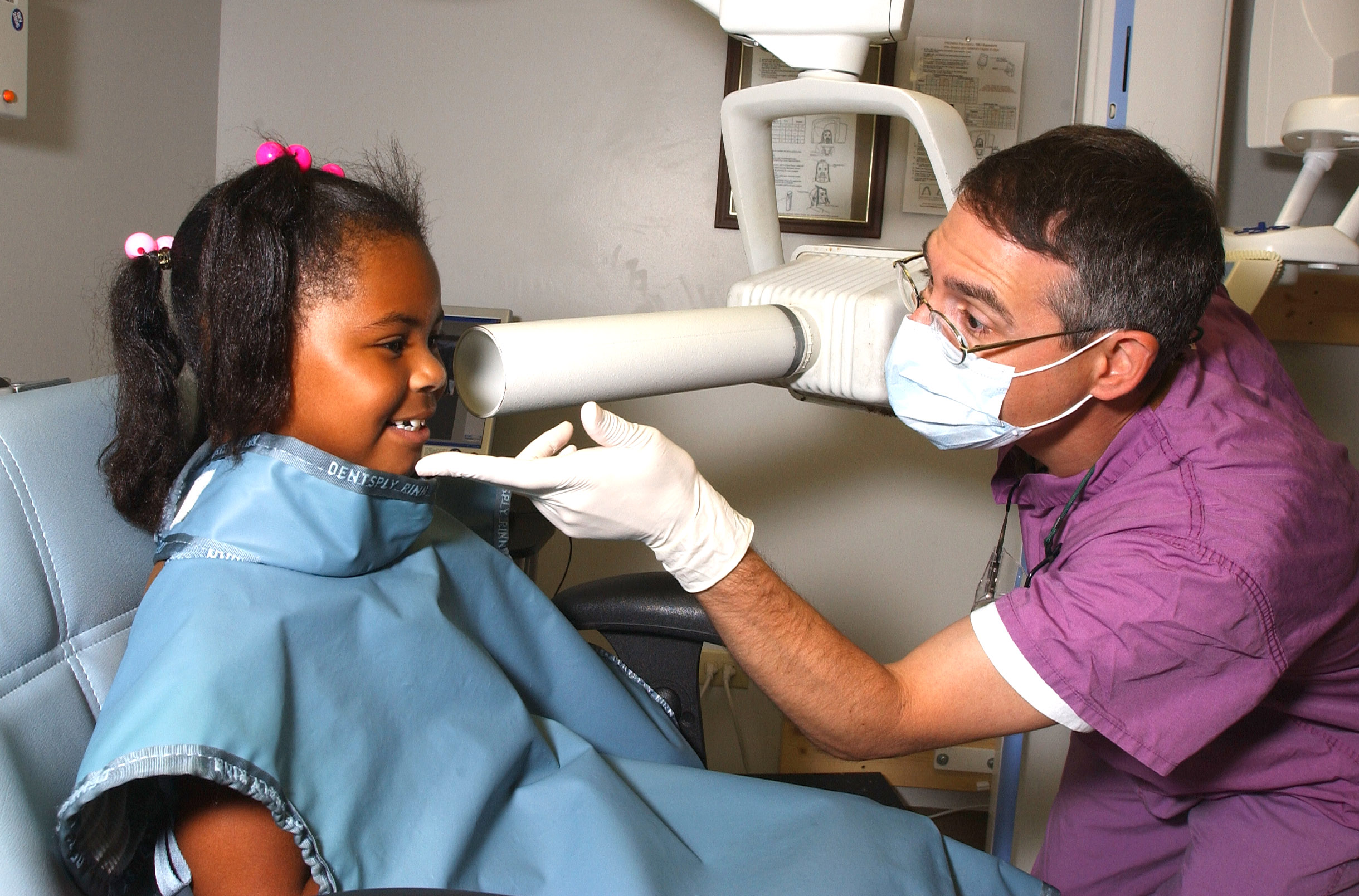Dental sealants are a safe and effective way to prevent cavities for kids. But are they just for kids? After all, tooth decay can still happen at any age. Why shouldn’t adults get dental sealants, too?
Instead of asking “can adults get sealants?” (the short answer: They can), a more relevant question is whether the benefits are worth it.
How Do Dental Sealants Work?
Dental sealants start out as liquid resin. Painted onto the biting surfaces of teeth, the liquid fills in any tiny grooves and pits. This helps keep food from collecting in these spots. Once the resin dries and hardens, it forms a clear, thin, plastic barrier. This seals teeth off from harmful bacteria that can cause cavities.
Getting dental sealants is quick and painless. The first step is a dental checkup that includes x-rays and cleaning. Dentists want to be sure they are placing sealants on healthy teeth. If a tooth has a cavity, the sealant could trap the infection inside leading to more serious decay.
After the teeth are thoroughly examined and cleaned, the dentist preps the surfaces by applying a gel. This creates a slight texture so the sealant resin will stick. The patient rinses after a few seconds and then the teeth are allowed to dry completely.
Next, the dentist applies the sealant liquid with a small brush and the patient waits for it to dry. A curing light might be used to speed up the process. Once completed, the dentist will perform a “bite check”, ensuring that the layer of plastic hasn’t significantly changed the way the teeth fit together when the patient bites down or chews.
In most cases, dental sealants are only applied to molars. They are typically the most likely to get cavities, since they do the heavy chewing. Molars also have more uneven surfaces where food and bacteria can hide. Dental sealants will eventually wear out, but generally last for five to ten years.
Why Sealants are a Good Idea for Kids

Dental sealants are most often recommended for children. They can be put on baby teeth, but usually, a dentist will wait for the permanent teeth to grow in and then cover the molars with sealants.
Sealants are popular for kids because they work at preventing cavities. The CDC reports that kids aged 6 to 11 without sealants have three times the number of molar cavities as those who have them.
Kids might need extra help from sealants to fight cavities for a couple of reasons. Diets containing a lot of sugary snacks can contribute to decay. Plus, young children do not have the coordination it takes to do a good job brushing their teeth. These two factors combined allow for bacteria to flourish on teeth, eventually eating away at the enamel and forming cavities.
It is never too early for parents to establish good oral hygiene habits with their kids. Brushing, flossing, and seeing a dentist for regular checkups early in life can help catch tooth decay before it gets serious. Dental sealants add protection so cavities might be avoided entirely.
The Case for Adult Dental Sealants
Few people make it to adulthood without getting a cavity. According to the National Institute of Dental and Craniofacial Research, 92% of adults aged 20 to 64 have had a dental carie (cavity). And while they might not be quite as cavity-prone as young children, adults do get new cavities. In fact, the American Dental Association notes that “As we get older, we enter a second round of cavity prone years.”
Just as with kids, teeth that have a lot of pits and crevasses might make an adult more cavity-prone. Family history and heredity play a role too, as does bruxism (teeth grinding) which can wear down tooth enamel.
Even though grownups are more likely to be disciplined about brushing and flossing, oral hygiene is still not a top priority for some. And just because someone is an adult does not mean that their diet is necessarily much better than it was when they were a kid.
Poor eating and dental habits aside, adults might suffer from cavities due to some issues associated with health and aging.
The same ADA article mentioned above stated that there are more than 500 medications that cause dry mouth. This might seem like a harmless side effect, but saliva works to naturally clean the mouth of bacteria that causes cavities. Dry mouth is a problem for a lot of people as they get older. Adults who regularly take various medicines can be even more likely to get a cavity.
Elderly or disabled patients who need help with their dental care, might benefit from adult dental sealants. Conditions such as ALS, MS, or dementia might make it difficult for someone to maintain their oral health on their own. Age, in general, can also weaken teeth, making them more susceptible to dental caries.
Not only is it important to keep up regular dental visits throughout one’s life, adults with a higher likelihood of getting cavities might want to consider getting dental sealants.
Are Dental Sealants Right For You?

If an adult patient feels they might benefit from dental sealants, the first step is to consult with a dentist. Our online database is a great place for those without a regular dentist to find one nearby and make an appointment.
Dental sealants cost about $30 to $50 per tooth, which is less than having a cavity filled. In most cases, however, they are optional so dental insurance might not help with the bill. Another factor in whether or not they are worth the price is the condition of the teeth. If a patient already has a lot of fillings due to past cavities, sealants might not do much good.
Dental sealants are not a substitute for good brushing and flossing or regular dental checkups. Patients still need to take good care of their oral hygiene. But for certain adults, getting dental sealants can offer enough extra protection to keep their teeth healthy and cavity-free.


